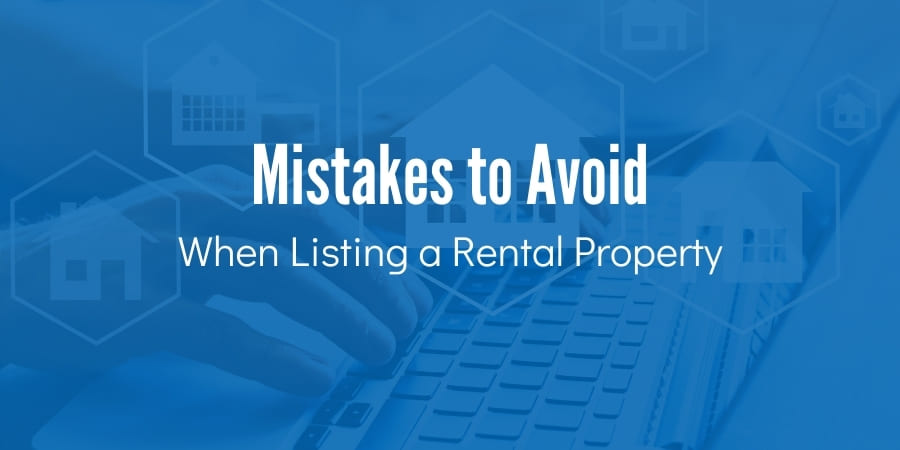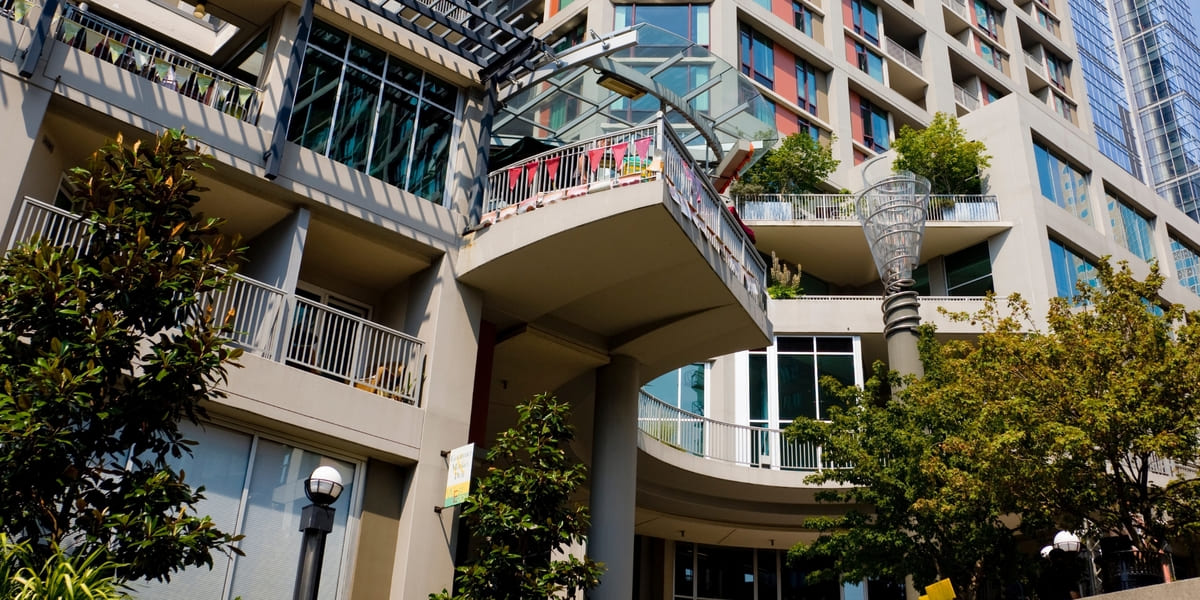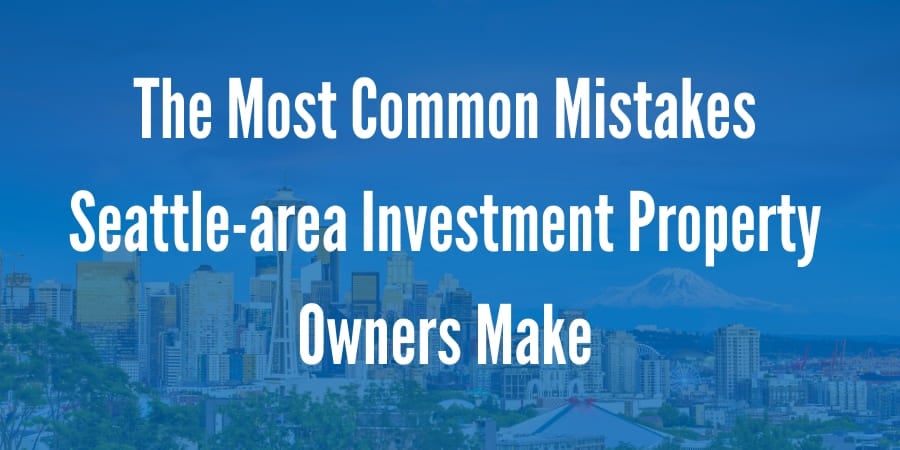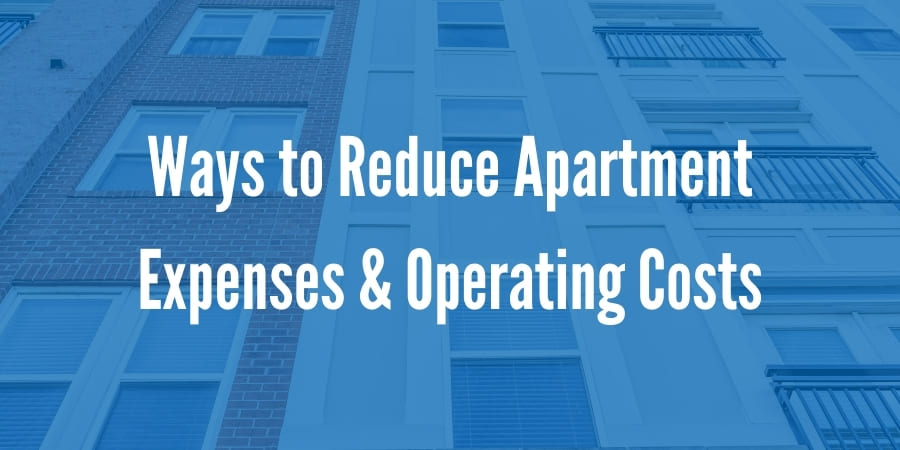6 Signs You Should Part Ways With Your Current Seattle Property Management Company
A property management company’s efficiency and reliability significantly influence the success of investment rental properties in Seattle. These...
3 min read
Jan Wieder : Dec 1, 2020 8:56:00 AM
You could own one of the finest rental homes or apartment complexes in the Seattle area, but if it sits vacant, you won’t see a worthwhile return on your investment.
One of the keys to keeping your rental properties occupied is to properly market them. You want to make sure your vacant rentals are being exposed not only to a wide audience but more specifically, individuals who are likely to be prospective tenants. You also need to be sure you have all the legal and rental documents need for your lease agreement.

When it comes to listing a rental property in the Seattle area, it’s important to keep your material up to date and to utilize different strategies depending on your target audience. You always want to be sure you have everything in order. Here is a look at some of the mistakes landlords make when listing a vacant apartment or home and how to avoid them:
More than 90% of people use online platforms as their main source of information when searching for a new home, according to the National Association of Realtors. Zillow remains the most widely trafficked website when it comes to rental searches. Although it’s not a free service—you pay $9.99 per week for an active listing—it’s a good way to reach your audience. Trulia, which is now owned by Zillow, is also popular, along with SeattleRentals.com, Abodo, Apartment Guide, Zumper, Realtor and Rent.com. It also doesn’t hurt to use free websites, like Craigslist. Lastly, you should be active on social media, whether that means using Facebook Marketplace or promoting your web listings on your company’s Facebook page or Instagram profile. Across all of these platforms, make sure that you are staying up to date on the trends to best attract tenants too! Clients of Powell Property Management earn the benefits of having their vacant properties listed and promoted on our website.
Although online sources are critical to advertising your investment property, you should also consider traditional methods. Depending on the location, you can use simple signage onsite to advertise a vacancy and share a phone number. Other strategies include taking out a classified ad in a newspaper or local magazine that features real estate listings and posting a flyer on a bulletin board at a supermarket or café near your property.
Your property listing is the first introduction to a prospective tenant, so you want to include all the pertinent information to help them make an informed decision about either leasing your space or at least inquiring further. When you’re paying per word, such as a newspaper listing, you have to be more economical, but in general, you should at least include: the property’s location and a brief description; how to contact you or your property manager; information about scheduling a tour; and images, videos, floorplans and other digital content.
Each of your active listings, including print and online material, should be kept up to date to reflect the current state of your property. That especially pertains to photos, as prospective tenants spend more time looking at images than reading each listing description. Make sure you invest time to curate digital content that is both current and high quality, especially in this era where digital advertising reigns supreme.
When using digital platforms—including your website, social media or external real estate sites—you should integrate good SEO techniques to get your listing adequate visibility. Some SEO tactics to consider include using keyword phrases and alt tags on your imagery; omnichannel marketing; and linking to other valuable resources. Track the analytics to see how your listings are performing and make adjustments accordingly.
When reviewing listings, prospective tenants will take stock of what others are saying about their experience with your property or the quality of your property management. You should manage your reviews, both positive and negative, to increase the success of your listing. When people leave negative feedback, request tips for improving the experience in the future and provide the reviewer with contact information to address their concerns more personally. You can ask individuals who leave positive feedback to give a referral.
Just as there is certain information to include in your real estate listing, there are also certain words and phrases to avoid. Don’t use abbreviations or vague, generic terms, such as “quality,” “nice,” “modern” or “clean,” which don’t communicate anything but the obvious. You also don’t want to include any words or phrases that could violate the Fair Housing Act. Some Fair Housing words to avoid include “walking distance” and “family home.” In general, when advertising your rental property, you cannot state preference, limitation or discrimination based on a person’s gender identity, sex, familial status, race, ethnicity or age.
Advertising your vacant rentals is an important part of being a landlord, but it's also a time-consuming one. At Powell Property Management, rental marketing is one of the tasks we assume on your behalf as a full-service property management company. Because we’ve worked for years in the South Puget Sound market, we are experienced with best practices and how to properly market and advertise your property to reach a diverse audience of qualified tenants.
You may also like: Common Fears of Hiring a Property Manager in Seattle

A property management company’s efficiency and reliability significantly influence the success of investment rental properties in Seattle. These...

Owning a residential or commercial investment property can be a great way to make money. Like most business opportunities, however, it’s not always...

As the old adage goes, you have to spend money to make money. As the landlord of an apartment complex or other multifamily dwelling in the Seattle...